I’m beginning to hate freedom of expression. I’m serious. It’s a bitch to understand. It’s a bitch to write about, too. Nonetheless, I am thankful that because of it, I have the right to say I hate it.
Freedom of expression is one those rights where when you tell someone to “shut up”, they’d shout back “I have freedom of expression, okay!” I think it has been misused a lot. I also think most people do not fully understand what it really means.
While I was working on articles for strategic litigation cases undertaken by the Malaysian Centre for Constitutionalism and Human Rights (MCCHR), I realised that more than half pertain to freedom of expression. This article on Zunar’s case would be my second article on freedom of expression concerning a book banned. I still find it a bitch of a concept to grasp hold of.
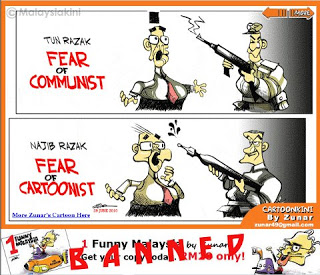
Unlike what most would like to think, freedom of expression is not absolute.
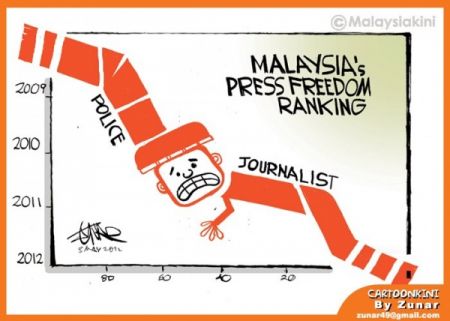
In this case here, the limit was “public order”.
What does it mean to ban cartoons based on public order?
One thing I learnt from my internship last summer is that Google is not research. There are a lot of things where Google Search will not provide you with a definite answer. “Definition of public order” is one. Believe me, I’ve tried.
So after begging for Editor’s help, pestering her with emails and questions, bossing her around to do research for me (I’m sure she loathes me) (No lar), I finally (kinda, sorta) understood what it means to breach public order. Taking this case as an example – in accordance with international human rights laws – Zunar’s cartoons will only be said to breach public order if he drew something with the intention to incite imminent violence. There must be a direct and immediate connection between the cartoons and the likelihood or occurrence of such violence. The purpose of limiting the freedom of expression is to protect the existence of the nation or its territorial integrity against force or threat of force.
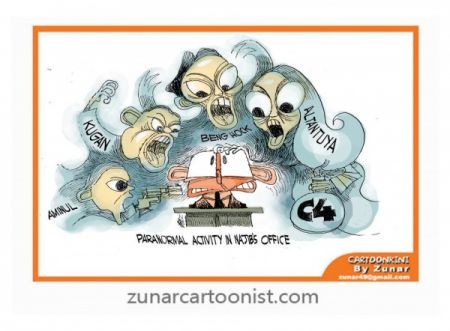
It is not even enough that whatever he draws severely pisses you off.
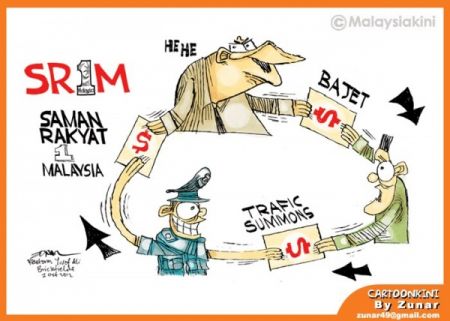
For it to be considered a threat to public order, his cartoons need to piss you off (or motivate or incite you), for you to actually use violence as a retaliation or response to the cartoons.
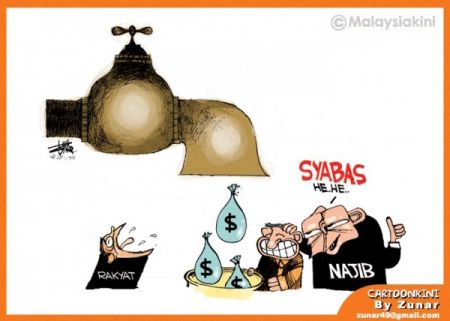
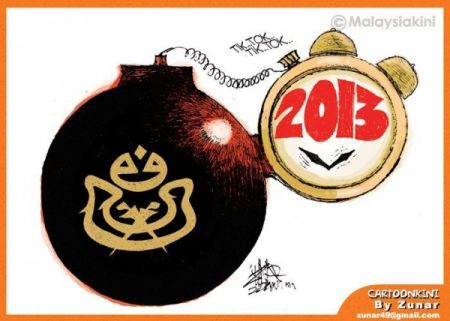
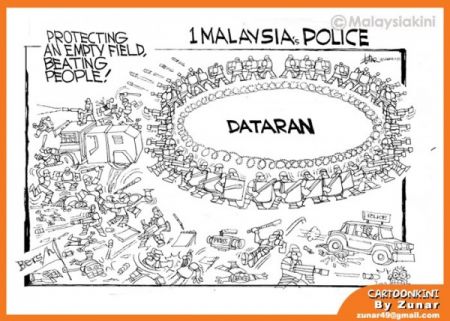
Public order will only be affected if the protestors start getting violent and using force.
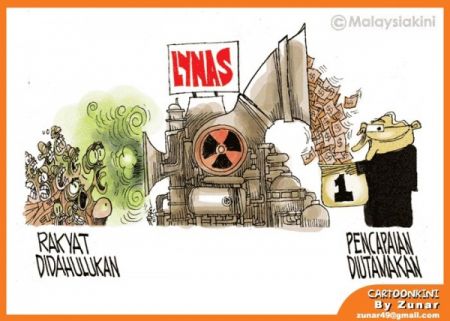
Taking everything into consideration, it has to be proven that the trigger of the violent protest was the cartoons and not pure rage flowing from the supporters in the first place. Therefore, you see the public order thing has a lot of variable factors.
With this, the government must take care to ensure that there is a possibility of such occurrences in order to impose a ban on the freedom of expression. If not, litigants who feel that their freedom to expression has been infringed can seek judicial review. This is precisely what is going on in Zunar’s case.
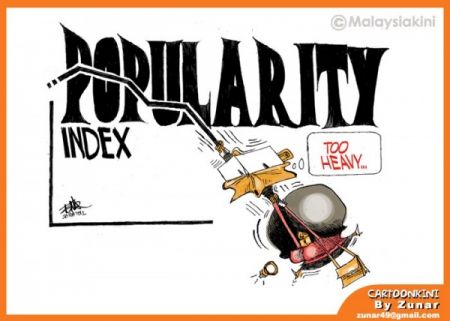
Looking at pictures of Zunar’s cartoons, I find his cartoons really funny. It’s amazing how he is able to convey his message with a few words, speech bubbles and a simple drawing. I, on the other hand need more than 800 words! I found them funny, had a good laugh – and if not for this article – I would have forgotten about them. So no, I would not say that his cartoons triggered me to commit anything violent.
If I could speak on behalf of the youths and my friends, I do not think the cartoons would incite any violence in them. Most of them would fail to understand the message of his cartoons in the first place.
Why then did the home minister say that it is?

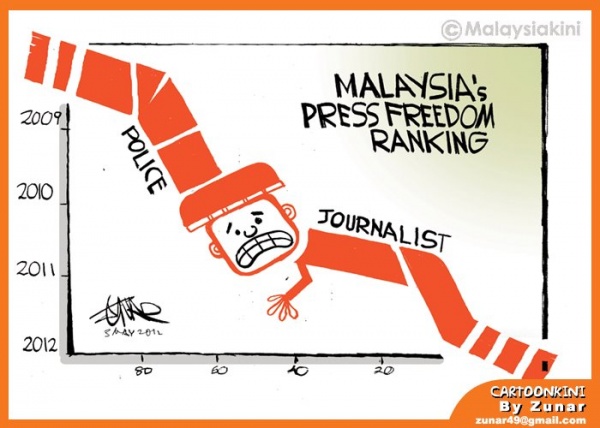
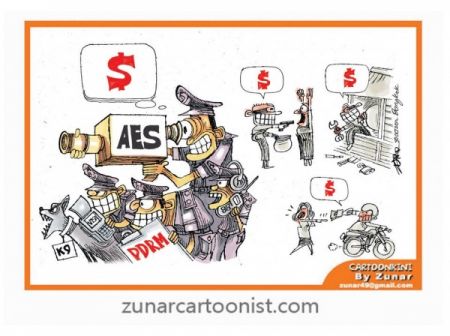
sdgdsds
Well written, Rebecca.
Nice!
Because they are humiliating to the millions of fanatical fans (real or imagined) of the person featured in those cartoons, and these people would mogok and therefore created disorder.